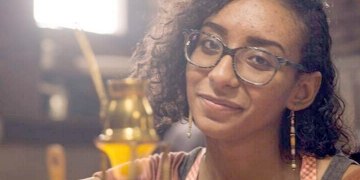
Khartoum: Zainab Sirral- Khatim
From fondness, methodicl drinking and addiction to coffee, to establishing a reputable commercial café. The Sudanese community activist, Weaam Shawgy, the owner of the “Izis” project, went through an ardous way out of the societal norms and the work of girls in selling coffee and tea to the public returning home in the middle of the night, to a successful businesswoman who overcame difficulties to achieve a social project that allowed friends to meet in the first place than being a profitable business.
Weaam began her project by a small cafe, with a moderate capital, which was provided by her family, who lived for a long time in abroad, to set up her premises as a meeting place for the intellectuals, culture concerned and writers. She founded a space for talent launching. In every corner of “Izis Café “in Khartoum, a melody might coincidently be born, might be a painting or a poem could be composed.
When you enter the place in the Riyadh neighborhood, one of the finest neighborhoods of Khartoum, you will feel a sense of warmth and vitality.
There will tactile your hearing a tune or murmurs of a composer working to compose new words, or a musician or an amateur who plays the lute. In another isolated corner, an artist paints a painting in which he slips in his feelings and emotions.
There ,a family sits together , friends gather after a long absence, parted by the ways of life in search for earning their living .
The smell of coffee fills the place. There, you can sit at a table with a set of books placed on it. While you are waiting for a cup of coffee, curiosity will prompt you to read one of them or browse it. Every where around you , you will be peering at a Sudanese folklore item.
Weaam Shawgy, the owner of the Izis Café project, graduated at ٍ Sudan University from the College of Communication Sciences in the year 2014. First she worked as a journalist, in response to her desire to develop her talent of writing that she gained at an early age. Then she moved to work on the Sudanese Broadcast, only to quit after a while to join the staff of an electronic magazine related to women’s issues. Then she moved to work in Sudan TV.
Despite this lengthy path in formal profession, Weaam did not forgo her dream which she kept since her graduation; entrepreneurship. She had a feeling that she did not want to work as an employee and that she must own a private job because of her belief that the job is the slavery of the third millennium.
Weaam says” My desire to be free from the restrictions of the job continually urged me to get free from jobs and what encouraged me more is my mother’s owning her private business in embroidery and sewing. She also owned a beauty salon besides a clothing and cosmetic store in (Abu Adam) area south of the capital Khartoum. She continues saying , “My mom allowed for me a space to set up the coffee shop. I wanted people to come to drink coffee with a (cupcake) beside reading books, but the wind blew the other direction as many problems besieged me because the idea was not socially preferred. So I gave up under the stress that people do not accept the idea but with encouragement from my mother, I re-opened “ Izis Café” in Al-Sahafa area in central Khartoum with partnership with my mother where the idea proved to be successful as the place always was crowded by visitors.
My mother seeing my success gave me her part to allow for more growth for me to extend the café, but the owners of the building did not like that and they sued me for evacuation of the cafe and won the case despite my belief that my evidences and witnesses were sufficient to win the case but the owners won the case not because they are right, but due to my ignorance of customary law and my misplaced confidence in the former regime judicial system, “Bashir’s regime).”
“I left the place with a sense of the impossibility of returning, and at the height of the feeling and conflicting ideas, I came across a friend and told him what happened to me and my inability to continue. He asked me to lift him to meet people who could share the café’s partnership and discuss the matter .
This was a glimmer of hope amid a sense of defeat . From there we headed to Omak Street in the neighborhood ” Al-Riyadh” in Khartoum. On our way I glimpsed the structure of a building consisting of concrete pillars and thought of it as a suitable place for the cafe and told my companion about the idea. When we reached our destination in search of a partner . When I met the assumed partner I briefed him suggesting in the same time to rent the unfinished building I had seen . In an usual coincidence the owner of the structure was present there. I did not expect to be that lucky, but he agreed to rent the place and for us and to set it up to suit the project. So I was able to start once again.
I did not have a practical plan to overcome the challenges in a country where people make difficulties in every step of an innovator. Difficulties and obstacles were present since I took the first step of registering the business name and issuing the health card. all asked for bribes. Some officials asked me about my political political and social views .
Some asked for a percentage of the revenue. I was the subject of threats and warnings from the employees of the previous regime and from here I learned the lesson; to be a successful trader you must be a silent citizen).
“At the beginning of the project, it was a family business. That meant no salaries and no formal accounts, but it differed when partners shared it with me. The challenge was to go further than just being the owner of the initial idea. There should be a dedicated ambition to develop the initial idea.
I did not look to the project from the perspective of a businesswomen concerned only with the idea of profit and loss, but as a cultural project to raise social awareness providing a place ‘for all people of different cultures.
The challenge became how to resolve the dispute over my ownership and distribution of roles between me and the partners in managing the café. So I took the cultural side and cafe activities alongside supervising the kitchen and decorations and left the financial and administrative side for the partners to address the official aspects. I learned a new lesson that the successful work should not be based on emotions.
Once again, due to the economic hardship, the landlord asked me to evacuate the shop for urgent need and my partner agreed to evacuate. Later I discovered that the tenant on the top floor wanted to put hand and expand the café.
Weaam after her project was interrupted concluded her speech by saying: I am trying to rise again and regain my ability to go on . The question is still there; when will the state meet the aspirations of entrepreneurs by protecting their projects through enacting binding laws so that people may not fight hopelessly to earn their living because of their political or social beliefs.















